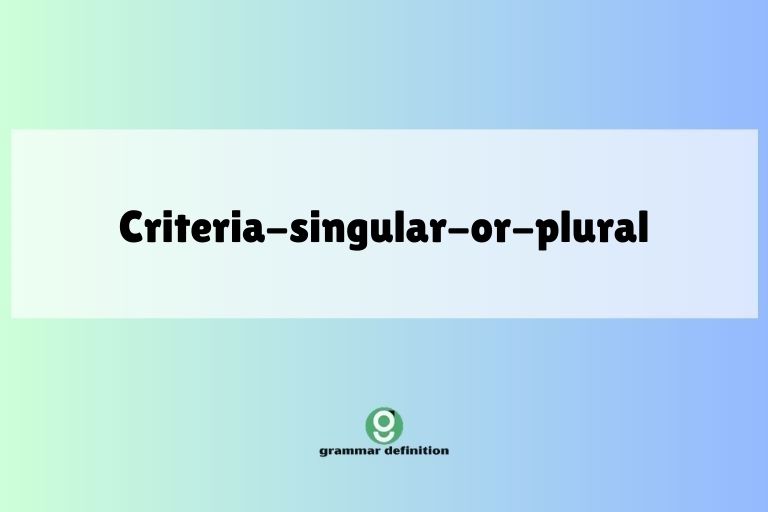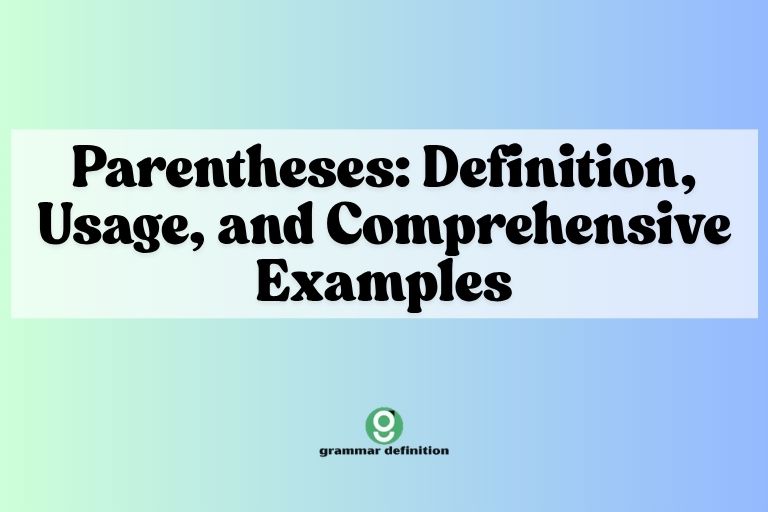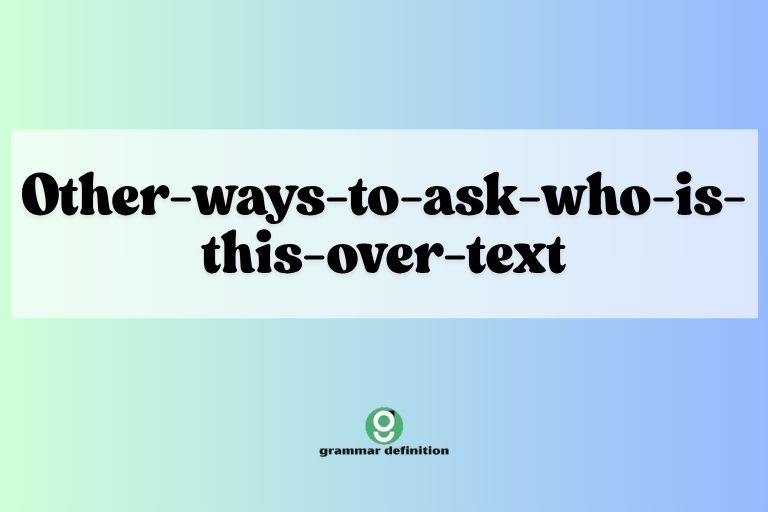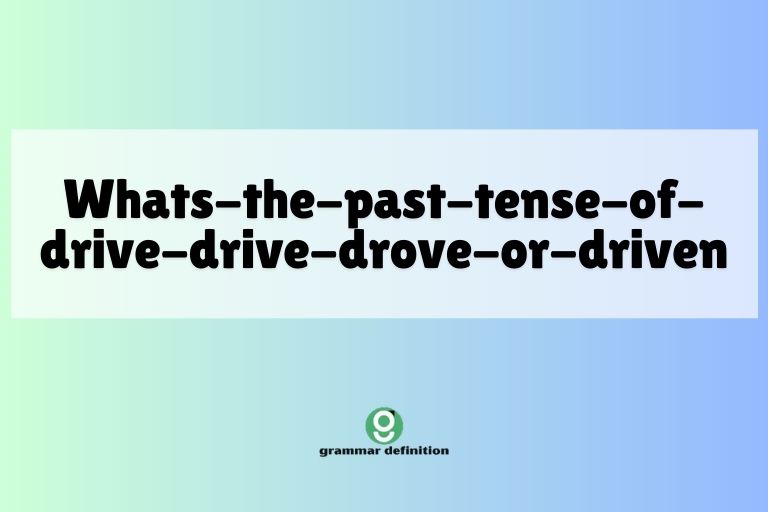What’s the Plural of Nemesis? A Grammar Guide
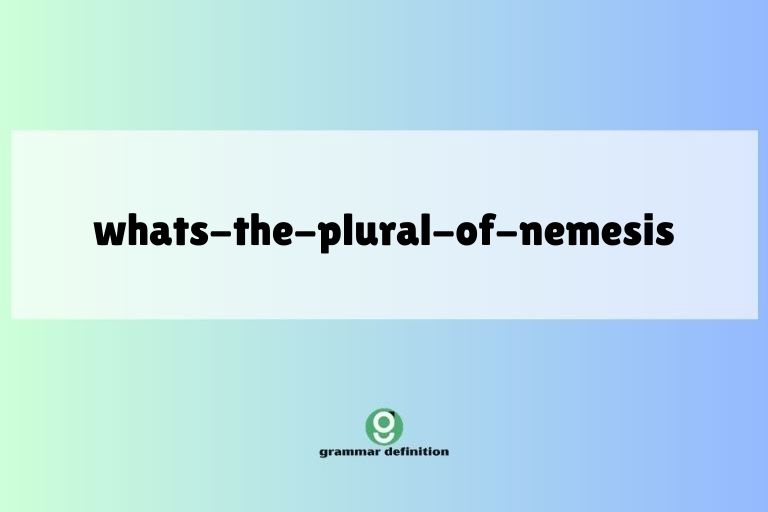
Understanding the plural forms of words, especially those borrowed from other languages, is crucial for accurate and effective communication. The word “nemesis,” with its roots in Greek mythology, often poses a challenge.
This article delves into the correct pluralization of “nemesis,” exploring its origins, grammatical rules, common errors, and providing numerous examples and practice exercises to solidify your understanding. Whether you’re a student, writer, or simply an English enthusiast, mastering the plural of “nemesis” will enhance your linguistic precision and confidence.
This comprehensive guide covers everything from the basic definition and structural breakdown of the word to advanced topics like its usage in different contexts. By the end of this article, you’ll not only know the correct plural form but also understand the underlying principles that govern its formation.
This knowledge will empower you to navigate similar grammatical challenges with ease and improve your overall command of the English language.
Table of Contents
- Definition of Nemesis
- Structural Breakdown
- Types or Categories
- Examples of Nemesis and Nemeses
- Usage Rules
- Common Mistakes
- Practice Exercises
- Advanced Topics
- FAQ
- Conclusion
Definition of Nemesis
The word “nemesis” originates from Greek mythology, where Nemesis was the goddess of retribution, the embodiment of divine vengeance against those who had succumbed to hubris (excessive pride) or committed wrongdoing. In modern English, a nemesis refers to:
- An archenemy: A long-standing and significant opponent, often in a personal or professional context.
- An agent or act of retribution or punishment: Something that a person cannot conquer or overcome.
- A source of harm or ruin: Something that consistently causes problems or failure.
The word functions primarily as a noun. Its classification is that of a common noun, referring to a general category of opponents or sources of trouble rather than a specific individual. The context in which “nemesis” is used often dictates the intensity and scope of the opposition or problem it represents. It can range from a playful rivalry to a deeply antagonistic relationship or an insurmountable obstacle.
For example, a sports team might consider their rival team their nemesis. A student might consider a particularly challenging subject their nemesis.
A superhero might have a recurring villain as their nemesis. The key is that the nemesis represents a significant and often persistent challenge.
Structural Breakdown
The word “nemesis” comes directly from Greek. Understanding its Greek origin is key to understanding its pluralization.
In Greek, words ending in “-is” often form their plural by changing the ending to “-es.” This pattern is followed by several English words borrowed from Greek, such as “analysis” (plural: “analyses”), “crisis” (plural: “crises”), and “hypothesis” (plural: “hypotheses”).
Therefore, the plural of “nemesis” is “nemeses.” This follows the Greek declension pattern and is the grammatically correct form. While some might be tempted to add a simple “-s” to form “nemesises,” this is generally considered incorrect and should be avoided in formal writing. The pronunciation of “nemeses” is /ˈnɛmɪsiːz/.
The singular form, “nemesis,” carries the stress on the first syllable (nem-e-sis). The plural form, “nemeses,” also carries the stress on the first syllable (nem-e-sees), maintaining the same stress pattern as the singular form. This consistency in pronunciation helps to distinguish it from other words and maintain clarity.
Types or Categories
While the grammatical form of “nemesis” and “nemeses” remains consistent, the context in which they are used can vary. We can categorize the usage of “nemesis” based on the type of opposition or challenge it represents:
Personal Nemesis
This refers to an individual who is a direct and personal adversary. This could be a rival, a former friend turned enemy, or someone who actively seeks to undermine the protagonist.
Examples include:
- A school bully who constantly harasses a smaller student.
- A business competitor who engages in unethical practices to gain an advantage.
- A former romantic partner who seeks revenge after a breakup.
Professional Nemesis
This type of nemesis is encountered in a professional setting. It could be a rival colleague, a competing company, or any entity that poses a significant threat to one’s career or business.
Examples include:
- Two law firms constantly battling each other in court.
- Competing tech companies vying for market dominance.
- A journalist investigating a corrupt politician.
Abstract Nemesis
An abstract nemesis is not a person but rather a concept, a problem, or a force that consistently hinders progress or causes failure. This could be a disease, a natural disaster, or even a personal flaw.
Examples include:
- Cancer, which can be considered a nemesis to those diagnosed with it.
- Procrastination, which can be a nemesis to productivity.
- Poverty, which can be a nemesis to social mobility.
Fictional Nemesis
This category refers to nemeses in literature, film, and other forms of fiction. These characters are often complex and well-developed, serving as foils to the protagonist and driving the narrative forward.
Examples include:
- The Joker, Batman’s iconic nemesis.
- Professor Moriarty, Sherlock Holmes’s intellectual rival.
- Voldemort, Harry Potter’s ultimate nemesis.
Examples of Nemesis and Nemeses
To further illustrate the usage of “nemesis” and “nemeses,” here are several examples categorized for clarity. These examples demonstrate the word’s versatility and its application in various contexts.
Examples of Nemesis in Sentences
The following table provides examples of “nemesis” used in various contexts. Note how the singular form is used when referring to a single opponent or challenge.
| Sentence | Context |
|---|---|
| For years, the Red Sox were the Yankees’ nemesis. | Sports Rivalry |
| Public speaking was always her nemesis, filling her with anxiety. | Personal Challenge |
| The detective vowed to bring his nemesis to justice. | Crime and Law |
| Inflation has become the economy’s greatest nemesis. | Economic Problem |
| The protagonist finally confronted his nemesis in the climactic battle. | Fictional Narrative |
| Climate change is a global nemesis, threatening ecosystems worldwide. | Environmental Issue |
| Bureaucracy can be a nemesis to innovation in large organizations. | Organizational Challenge |
| For the struggling artist, self-doubt was a constant nemesis. | Personal Struggle |
| The cybersecurity expert dedicated his career to fighting his digital nemesis: hackers. | Technological Threat |
| Her inability to delegate tasks became her professional nemesis. | Career Obstacle |
| The small business owner saw the large corporation as a powerful nemesis. | Business Competition |
| The aging athlete considered injuries his greatest nemesis. | Physical Challenge |
| Despite his efforts, writer’s block remained his persistent nemesis. | Creative Obstacle |
| The politician viewed the opposing party as his political nemesis. | Political Rivalry |
| Misinformation online is a growing nemesis to informed public discourse. | Societal Issue |
| The chef considered the complicated soufflé his culinary nemesis. | Professional Challenge |
| For the data scientist, inconsistent data was a recurring nemesis. | Technical Problem |
| The environmental activist saw pollution as the planet’s nemesis. | Environmental Concern |
| The student viewed the complex mathematical equation as a daunting nemesis. | Academic Challenge |
| Corruption within the government was seen as a societal nemesis. | Political Issue |
Examples of Nemeses in Sentences
The following table provides examples of “nemeses” used in various contexts. The plural form is used when referring to multiple opponents or challenges.
| Sentence | Context |
|---|---|
| The superhero had several nemeses, each with unique powers. | Fictional Narrative |
| The company faced numerous nemeses in the competitive marketplace. | Business Competition |
| The athlete overcame many nemeses on her path to success. | Personal Achievement |
| The historian studied the various nemeses of the Roman Empire. | Historical Analysis |
| The detective realized that the seemingly unrelated criminals were actually working as nemeses. | Crime and Law |
| The environmental organization identified several key nemeses threatening biodiversity. | Environmental Issue |
| The political analyst discussed the historical nemeses of the current regime. | Political Analysis |
| The scientist studied the various biological nemeses affecting crop yields. | Agricultural Research |
| The cybersecurity firm identified multiple digital nemeses targeting their clients. | Technological Threat |
| The artist’s previous failures became her nemeses, fueling her determination to succeed. | Personal Motivation |
| The team had to confront several nemeses throughout the challenging season. | Sports Competition |
| The philosopher explored the various intellectual nemeses to human understanding. | Philosophical Inquiry |
| The writer crafted a story filled with complex characters and their interconnected nemeses. | Literary Creation |
| The economic report highlighted several key nemeses to sustainable growth. | Economic Analysis |
| The psychologist studied the various internal nemeses that can hinder personal development. | Psychological Research |
| The community faced numerous social nemeses, including poverty and inequality. | Societal Challenges |
| The research team identified several environmental nemeses affecting local ecosystems. | Environmental Study |
| The historian documented the political nemeses that led to the downfall of the empire. | Historical Documentation |
| The healthcare professionals worked to combat the many nemeses affecting public health. | Medical Efforts |
| The entrepreneur had to overcome several financial nemeses to build a successful company. | Business Challenges |
Examples of Nemesis and Nemeses in Literature
The following examples showcase the use of “nemesis” and “nemeses” in literary works, demonstrating how authors have employed these words to convey complex relationships and conflicts.
| Example | Source | Context |
|---|---|---|
| “He was her intellectual nemesis, always challenging her assumptions.” | Fictional Novel | Describes a character’s rival in a debate |
| “The city had many nemeses, from natural disasters to political corruption.” | Historical Fiction | Illustrates the various challenges faced by a city |
| “She considered her own self-doubt her greatest nemesis.” | Contemporary Literature | Portrays an internal struggle |
| “The detective had several nemeses he had put behind bars, but there was always another.” | Crime Thriller | Describes enemies a detective has encountered |
| “His past mistakes acted as nemeses, haunting his every decision.” | Psychological Drama | Shows internal struggles and past actions |
| “The hero had to face not one single nemesis, but a multitude of them, each more dangerous than the last.” | Fantasy Epic | Describes the challenges the hero must face |
| “The protagonist’s childhood trauma served as her constant nemesis, impacting her relationships.” | Psychological Novel | Illustrates how past trauma can be a continuing obstacle. |
| “The historian identified various economic nemeses that contributed to the empire’s decline.” | Historical Analysis | Examining the economic factors that caused the empire’s downfall. |
| “The scientist saw climate change as the ultimate nemesis to the planet’s biodiversity.” | Scientific Article | Expressing the threat of climate change to the earth. |
| “The entrepreneur regarded government regulations as constant nemeses, hindering innovation.” | Business Critique | Analyzing the challenges businesses face due to regulations. |
| “The artist’s creative block became a formidable nemesis, preventing her from completing her masterpiece.” | Artistic Struggle | Describing the internal battle an artist faces. |
| “The athlete considered injuries his most persistent nemesis, threatening his career.” | Sports Biography | Narrating the challenges of an athlete facing physical setbacks. |
| “The activist viewed social injustice as a pervasive nemesis, undermining equality and fairness.” | Social Commentary | Highlighting the impact of social injustice on society. |
| “The scholar explored the philosophical nemeses that have challenged human understanding for centuries.” | Philosophical Essay | Discussing the intellectual obstacles in human knowledge. |
| “The doctor saw infectious diseases as relentless nemeses, constantly evolving and threatening public health.” | Medical Journal | Examining the ongoing battle against infectious diseases. |
| “The politician regarded political corruption as a formidable nemesis, eroding public trust.” | Political Analysis | Analyzing the negative effects of corruption in politics. |
| “The urban planner saw environmental degradation as a significant nemesis, endangering the sustainability of cities.” | Urban Planning Report | Discussing the environmental challenges in urban development. |
| “The teacher viewed apathy among students as a pervasive nemesis, hindering their academic progress.” | Educational Study | Analyzing the impact of student apathy on learning. |
| “The economist saw economic inequality as a persistent nemesis, limiting opportunities for many.” | Economic Report | Examining the consequences of economic inequality. |
| “The historian documented the various ideological nemeses that led to the outbreak of the war.” | Historical Account | Narrating the ideological conflicts that caused the war. |
Usage Rules
The usage of “nemesis” and “nemeses” follows standard grammatical rules for singular and plural nouns. Here’s a breakdown:
- Singular (“nemesis”): Use when referring to a single opponent, challenge, or source of trouble.
- Plural (“nemeses”): Use when referring to multiple opponents, challenges, or sources of trouble.
Agreement: Ensure that the verb agreement matches the noun. If the subject is “nemesis,” use a singular verb. If the subject is “nemeses,” use a plural verb.
Examples:
- Singular: “His nemesis is always one step ahead.”
- Plural: “His nemeses are constantly plotting against him.”
Formal vs. Informal: While “nemeses” is the grammatically correct plural, some writers might occasionally use “nemesises” in informal contexts. However, it’s best to stick to “nemeses” in formal writing and speech to maintain credibility and accuracy.
Common Mistakes
One of the most common mistakes is using “nemesises” as the plural form. This is incorrect and should be avoided.
Another common mistake is using “nemesis” when the plural form “nemeses” is required or vice versa.
Here’s a table illustrating some common mistakes and their corrections:
| Incorrect | Correct | Explanation |
|---|---|---|
| The superhero had many nemesises. | The superhero had many nemeses. | “Nemesises” is not the correct plural form. |
| His nemeses was a formidable opponent. | His nemesis was a formidable opponent. | “Nemeses” is plural; the sentence requires a singular subject. |
| Her nemesis are always causing problems. | Her nemeses are always causing problems. | The subject is plural, requiring a plural verb. |
| She faced her nemeses with courage. | She faced her nemesis with courage. | The sentence describes facing a single opponent, not multiple. |
| The company had one of nemeses in the industry. | The company had one of its nemeses in the industry. | Incorrect use of “of” and missing possessive pronoun. |
Practice Exercises
To test your understanding of “nemesis” and “nemeses,” complete the following exercises. Choose the correct form of the word to fill in the blanks.
Exercise 1: Fill in the Blanks
Choose the correct form, “nemesis” or “nemeses,” to complete the following sentences.
| Question | Answer |
|---|---|
| 1. The detective considered the serial killer his ultimate __________. | nemesis |
| 2. The superhero had to battle several powerful __________. | nemeses |
| 3. Procrastination is a common __________ for students. | nemesis |
| 4. The company faced numerous __________ in the competitive market. | nemeses |
| 5. For the athlete, injuries were a recurring __________. | nemesis |
| 6. The politician saw the opposing party as his political __________. | nemesis |
| 7. The environmentalist identified several key __________ threatening the ecosystem. | nemeses |
| 8. Her past failures became her __________, driving her to succeed. | nemeses |
| 9. Writer’s block was his constant __________. | nemesis |
| 10. The war had many __________, both internal and external. | nemeses |
Exercise 2: Correct the Sentences
Identify and correct the errors in the following sentences related to the use of “nemesis” and “nemeses.”
| Question | Answer |
|---|---|
| 1. The superhero had multiple nemesises. | The superhero had multiple nemeses. |
| 2. Her nemeses was a formidable opponent. | Her nemesis was a formidable opponent. |
| 3. The detective faced his nemesis with unwavering resolve. | Correct as is. |
| 4. The company’s main nemesis are its competitors. | The company’s main nemeses are its competitors. |
| 5. Failure was her only nemesis. | Correct as is. |
| 6. The team overcame their nemesis to win the championship. | Correct as is. |
| 7. The villain had many nemesis. | The villain had many nemeses. |
| 8. Public speaking is a common nemeses for many people. | Public speaking is a common nemesis for many people. |
| 9. The politician had several powerful nemesises. | The politician had several powerful nemeses. |
| 10. His greatest nemesis are his own fears. | His greatest nemeses are his own fears. |
Advanced Topics
For advanced learners, exploring the nuances of “nemesis” can be quite rewarding. This includes understanding its etymological roots more deeply and its evolution in the English language.
Additionally, examining its use in rhetoric and literature can provide a richer appreciation for the word’s power and versatility.
Etymology: Delve into the Greek origins of the word and its connection to the goddess Nemesis. Understanding the cultural context of the word can add depth to its meaning.
Literary Analysis: Analyze how authors use “nemesis” to create compelling characters and narratives. Consider the psychological and thematic implications of the nemesis archetype.
Rhetorical Usage: Explore how politicians and public speakers use “nemesis” to frame arguments and influence audiences. Consider the ethical implications of using such a loaded term.
FAQ
Here are some frequently asked questions about the plural of “nemesis”:
- Is “nemesises” an acceptable plural form?
No, “nemesises” is generally considered incorrect. The correct plural form is “nemeses,” following the Greek declension pattern.
- How do I pronounce “nemeses”?
The pronunciation of “nemeses” is /ˈnɛmɪsiːz/. The stress remains on the first syllable, similar to the singular form.
- Can “nemesis” refer to an abstract concept?
Yes, “nemesis” can refer to an abstract concept, such as a problem, a challenge, or a personal flaw that consistently hinders progress.
- Is “nemesis” always a negative term?
Yes, “nemesis” typically carries a negative connotation, implying opposition, conflict, or a source of trouble. However, it can sometimes be used in a playful or ironic way.
- What is the origin of the word “nemesis”?
The word “nemesis” comes from Greek mythology, where Nemesis was the goddess of retribution, who punished hubris and wrongdoing.
- Can I use “nemesis” in both formal and informal writing?
Yes, “nemesis” is appropriate for both formal and informal writing. However, always use the correct plural form, “nemeses,” especially in formal contexts.
- What’s the difference between an enemy and a nemesis?
While both terms refer to opponents, a “nemesis” implies a more significant and persistent rivalry or challenge. A nemesis is often a long-standing adversary with a deep-seated conflict.
- Are there any synonyms for “nemesis”?
Yes, synonyms for “nemesis” include archenemy, rival, adversary, opponent, and antagonist. The best synonym depends on the specific context.
Conclusion
Mastering the pluralization of “nemesis” to “nemeses” is more than just a grammatical exercise; it’s a step towards greater precision and clarity in your communication. By understanding the word’s Greek origins, its structural breakdown, and its various applications, you can confidently use it in both written and spoken English.
Remember to avoid the common mistake of using “nemesises” and always ensure verb agreement.
Continue to practice and explore the nuances of this fascinating word. Pay attention to how it’s used in literature, media, and everyday conversations.
With consistent effort, you’ll not only master the plural of “nemesis” but also enhance your overall command of the English language. Embrace the challenge, and let your newfound knowledge empower you to express yourself with greater accuracy and eloquence.

